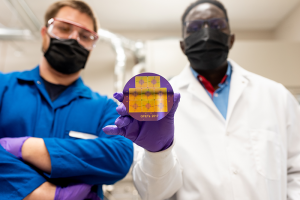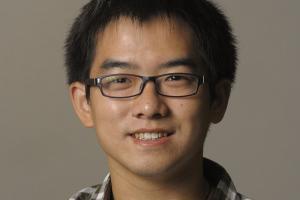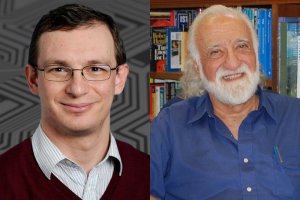News




Silicon is pretty great.
Testifying to its greatness is more than 70 years’ worth of steady progress in electronic computing, from the first primitive desktop calculators to that pocket-size supercomputer we call a smartphone.
Formulate silicon just right, shape it into a transistor, and it can be both a conductor and an insulator, depending on


Four students from Texas ECE have been named recipients of National Science Foundation Graduate Research Fellowships .The NSF Graduate Research Fellowship Program (GRFP) recognizes and supports outstanding graduate students in NSF-supported science, technology, engineering, and mathematics disciplines.
Three Texas ECE graduate students, Grace



